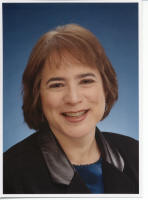Special Reports
Insuring Your Staffers: An Informal Survey
 We asked our intrepid reporter…
We asked our intrepid reporter…
… to do a completely unscientific survey of small-business CEOs in the arts and the group health care plan they chose for their employees. We wanted to know what insurers they use and why.
We discovered that group insurance options for small businesses in the arts are essentially no different from those offered to other businesses. With the proviso that laws and providers vary from one part of the country to another, and that some of our colleagues were more forthcoming
than others, the following is a brief guide for small to mid-size businesses seeking group health insurance.
Alliance Artist Management (New York, NY)
Alliance Artist Managing Partner Rob Robbins chose The Blue Cross Blue Shield Association over Oxford. He said he did so because it covers multiple states and Alliance’s other managing partner, David Middleton, resides in Rhode Island; Oxford Health Plans, LLC, a division of United HealthCare Services, Inc., was not available in Rhode Island. Though Robbins said he is satisfied with Blue Cross Blue Shield, he added, “I don’t know anyone who is happy with their insurance company. You don’t win in this game; it’s just bloody expensive. There’s no point in changing companies, because the rates will increase anyway.”
Alliance Artist Management covers the lion’s share of the premium payment for all four of its employees (including the managing partners). “We felt like we had to,” said Robbins. “It was an aching decision to make, but as a business owner, I felt it was important to offer this benefit which other organizations the same size might not provide.”
Ironically, the day after our interview, Robbins called to say he had received notice of a 25 percent increase in premiums.
Virginia Arts Festival (Norfolk, VA )
Virginia Arts Festival has 28 eligible employees (i.e., people who work at least 30 hours a week); 24 participate in the company’s health insurance plan, Optima Vantage HMO, one of the Optima
Health Insurance Co.’s options. Finance Director Sandy Robinett decided to work through a broker and, after reviewing a number of them, he chose TFA Benefits, affiliated with TowneBank in Hampton Roads, VA. He has high praise for their rep: “She is awesome, she always responds rapidly,” says Robinett.
VAF is pleased with the current plan, but Robinette re-evaluates it every year to make sure it’s the best and most cost-effective.
The Schubert Club (St. Paul, MN)
The Schubert Club, the Twin Cities’ venerable recital and chamber music presenter, had been getting its health insurance as part of a consortium of small arts organizations in the region. Executive and Artistic Director Barry Kempton was of the opinion that the bigger the group, the better the deal. His broker, however, Gallagher Benefit Services, advised against it, arguing that the insurance needs of the other organizations could result in higher rates for the entire consortium. Schubert Club’s 10 full-time employees are on the Medica plan and are happy with it.
The Pacific Symphony (Santa Ana, CA)
Like all union orchestras, Pacific Symphony’s musicians are covered by the American Federation of Musicians’ insurance plan [see Group Health Insurance Plans for Performing Artists]. Executive VP and COO Sean Sutton chose United HealthCare for his 45-member staff, not just for the basics, but also for dental, vision, disability, life, and health. “We try to bring balance and depth of coverage to the extent of our financial capacity,” said Sutton.
He advised using a broker, since brokers have a broad perspective on the field and there’s no extra cost involved. “Still,” he said, “you must educate yourself; don’t just rely [solely] on the broker.” Like Robinette at the Virginia Arts Festival, Sutton re-evaluates his plan regularly.
Concert Artists Guild (New York, NY)
Concert Artists Guild, a management company for up-and-coming performers, has eight employees who are eligible for its insurance plan, three of whom participate. Executive Director Richard Weinert chose Oxford because it offers group plans for small companies with as few as one or two employees. He opted not to work with a broker.

To Broker or Not to Broker?
Brokers can not only help groups to find the right plan, they can also provide support throughout the year, such as intervening if there is an issue concerning a claim. Brokers’ commissions are built into the insurance rate. In other words, your policy will cost the same whether you use one or not.
However, there may be a downside to using a broker. According to a recent article on MedSave.com, health insurance companies are increasingly unwilling to pay independent benefits brokers a commission for signing up small-business customers. If you rely solely on a broker’s pitches, you may be missing out on other available plans. In other words, do your homework.

Gail Wein is a media consultant and music journalist and has written for The Washington Post and Symphony magazine, among other publications. She is also a former producer of National Public Radio’s Performance Today. In a previous life, Wein was an actuary for Aetna and Towers Watson insurance companies.





 FEATURED JOBS
FEATURED JOBS

 RENT A PHOTO
RENT A PHOTO


